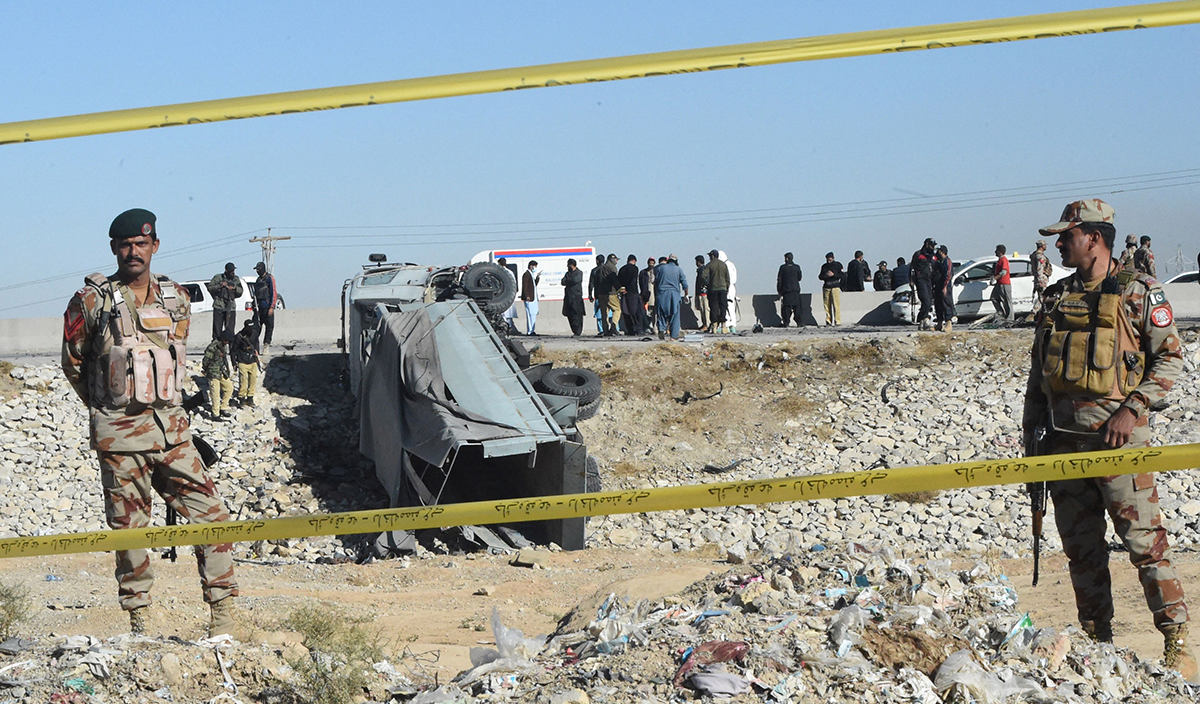
by Irfan Mahar 16 April 2023
Tensions, mistrust, and war have always characterised the relationship between Pakistan and Afghanistan. Security issues have dominated this relationship, and both nations have accused one another of sponsoring international terrorism and insurgencies. The Durand Line, a 2400–2670 km common boundary between Pakistan and Afghanistan, has been utilised by extremists to launch operations across the border. The border region has served as a sanctuary for numerous militant organisations. These organisations are charged with conducting assaults in both nations, producing instability in the area, and inciting mass violence. Due to the Durand Line and Pakhtoonistan concerns, Kabul has always maintained a hostile neighbour stance. The disputed Durand Line, which was created by the British colonial power, has continued to be a source of contention. While Afghanistan does not recognise the Durand Line as a boundary, Pakistan does. In this sense, Afghanistan voted against Pakistan’s membership in the UN and rejected the organization’s founding. On the other hand, the Pashtuns residing on both sides of the line implied unity because of a shared history, a shared culture, and ties to families and tribes. The Durand Line problem has caused antagonism between two countries.
While Pakistan has consistently stood by and supported Afghanistan during its trying times, including when Islamabad helped Kabul fight off Soviet occupation. While some Afghans praised Pakistan’s assistance in fending off foreign invasion, others saw it as “meddling in Afghan affairs,” which led to problems and anger and led to the emergence of anti-Pakistan sentiment in the country. Political conflict and the clandestine sponsorship of some militant groups have hampered relations between the two neighbours over the past few decades. Regarding India’s assistance against Pakistan and allowing anti-Pakistani militants to operate from Afghan territory, Pakistan has also continued to hold strong objections with Afghan governments. Islamabad is particularly concerned about extremist fighting groups entering from Afghanistan and carrying out deadly assaults on its territory in this regard.[i]
Pakistan’s security suffered significantly from Afghanistan’s security dynamics’ instability and volatility. In this regard, the stability of Afghanistan is crucial for Pakistan as well as the rest of the region and Afghanistan’s neighbours. Even so, the Afghan Taliban have guaranteed their neighbours that they won’t allow anyone to use their land to plot strikes against Pakistan or any other nation. Following the withdrawal of US and NATO forces from Afghanistan and the Taliban’s takeover of Kabul, a new era of regional politics and militant groups like Tehreek-e-Taliban Pakistan (TTP) and Islamic State Pakistan Province (ISPP) have emerged, primarily in Pakistan’s Baluchistan and Khyber Pakhtunkhwa provinces. Significant repercussions for Pakistan result from the Taliban regaining power in Afghanistan. The stability of the region and the security of Pakistan have been questioned because of the group’s return to power. Nearly 100 people have died as a result of the rising terrorist activity in Pakistan, including the attack on the Peshawar Mosque, and many more have been injured. The majority of Pakistanis think that these terrorist attacks are the work of militant or terrorist organisations that operate out of Afghanistan or have safe havens there.
Regarding Afghanistan’s perspective on Pakistan, there are numerous social groups that it can be categorised under. There are a lot of people in Afghanistan who believe that Pakistan is a key factor in Afghanistan’s deaths, damage, conflict, and underdevelopment. Additionally, they believe Pakistan has used Afghanistan to further its own interests and gain advantages by playing a double game. Therefore, this group or sector of Afghan society expresses resentment and hostility against Pakistan and works to worsen the situation there by a variety of means, such as terrorist acts and conspiracies. On the other hand, many Afghans commend Pakistan for its assistance to the Afghan people during difficult times. As throughout the Soviet invasion and US/NATO war in Afghanistan, they believe Pakistan has always supported and helped Afghanistan as a good neighbour and family member. Millions of Afghan refugees who fled their homes due to war and a worsening situation have found shelter in Pakistan. Additionally, Pakistan has always taken seriously its responsibility to help Afghanistan resolve its conflicts, wars, and other social, political, and economic problems.
Pakistan has taken a cautious stance in light of the complicated nature of its relationship with the Taliban administration. Pakistan has praised the Taliban for taking back control of Afghanistan, but it has also asked them to form a coalition government that includes all Afghan factions. Pakistan has emphasized the Taliban’s need to stop terrorist organisations from utilising Afghan soil as a base of operations. An important barrier to relations between Pakistan and Afghanistan has been security concerns. Both nations have accused one another of fostering terrorism, and the border region has been a hub for militant activities. It is essential to address these issues if we want to maintain regional stability and advance peace between the two nations.
The author is a research officer at an Islamabad-based think tank while pursuing a PhD at Quaid-i-Azam University’s Department of Defence and Strategic Studies.
[i] Gibran Naiyyar Peshimam, Pakistan frets over security threats from neighbouring Afghanistan, Reuters, September 1, 2021. Available at; https://www.reuters.com/world/asia-pacific/pakistan-frets-over-security-threats-neighbouring-afghanistan-2021-09-01/.
